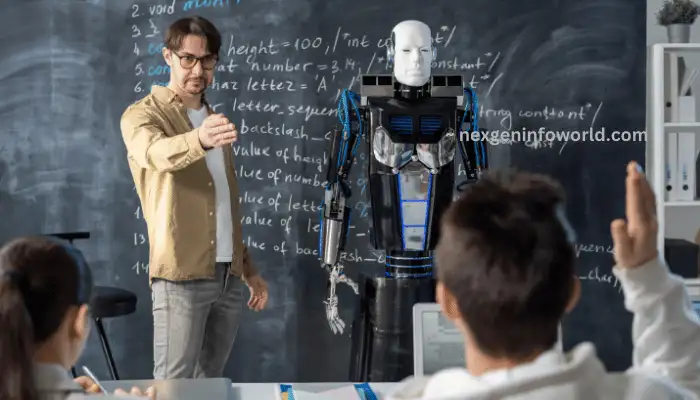Decoding AI’s Influence: Optimizing Learning, Assessment, and Teacher Performance
AI has long been depicted as the bad guy in popular culture and film, with machines rising against humans and laying waste to all. That is a long way off from today, with impractical assistants and AI that can do nothing without being told what to do. But wait until the future, and then AI would be able to perform multi-tasked collaborations more natively than what is available today. AI in preschool education sounds like science fiction, and though a good number of experiments here didn’t result well, some elements do work for both pupils and teachers. AI handles a great deal of administrative aspects to predict, analyze, or even evaluate the learning process for students as well.
What AI Can Do Now in Early Childhood Education:

- Data Prediction: AI can interpret performance trends, attendance records, etc. This can enable swift and precise detection of future behavior that humans would take a long time to figure out, making interventions more predictive and personalized if used effectively for education.
- Personalization of Learning: AI can identify the strengths, weaknesses, and learning styles of each student to design personalized learning paths so that students learn at their own pace. This method increases student interaction and also adds to the teaching experience.
- Evaluation and Grading: The grading, assessment, and other monotonous tasks of evaluation can be automated, allowing teachers to focus on interactive and student-centered education. Such a change can deepen the level of personalization in learning and free teachers up to be even more effective (and imaginative) as instructors.
- Feedback: AI-driven feedback systems offer immediate personalized insights about individual students, guiding teachers to take corrective steps. The speed of feedback ensures rapid growth and improvement in the educational process.
- Learning Management System (LMS) for Teachers: An LMS plays a crucial role in increasing the efficiency and effectiveness of education systems. Streamlining the curriculum, teaching materials, lesson plans, learning graphs, and the journey of every teacher on a single platform helps educators learn more efficiently. LMS integrated with AI-based modules supports the training and learning of teachers.
- Chatbots for Enrollment and FAQs: Chatbots can handle a number of course or admission inquiries, schedules, and more without human interaction. They manage FAQs, document verification, and share application status, ensuring human staff are not involved in monotonous and non-complex tasks, creating a simple and intuitive enrollment process.
Impact of AI on Preschool Education:
The future looks bright for the use of AI in preschool education as technologies become more accurate, offering smarter school management solutions. Some tasks AI is expected to handle in the future include:
- Interactive Tools: Young learners thrive on interaction with peers and adults. Tools will include augmented reality (AR) and tablets to make the learning experience interactive.
- Accessibility: With these tools accessible to everyone, the question of who can learn will become moot. AI could provide high-quality, race-blind education worldwide, regardless of economic standing.
- Critical and Logical Thinking: Tools like Popbots help young children develop critical logical thinking skills. These tools will make integrating STEM in preschools easier and fun. AI will be incorporated into many STEM-based activities to monitor and improve students’ critical thinking and logical reasoning skills.
- Identifying Natural Talent: Some children have natural talents, such as eidetic memory, artistic abilities, or advanced problem-solving skills. AI can identify and cater to the learning curves of such kids to maximize their potential.
- AI Preschool and Daycare: AI and humanoids will run preschools and daycares without human intervention. AI-based humanoid teachers will provide zero-error care for toddlers and babies. They will instruct preschoolers, care for them gently, and interact without showing negative emotions. They can easily connect to display units for better explanation of concepts, remember each child, record their progress, and customize the learning journey. It may sound like fiction now, but it could be a reality in the future.
Ethical Issues: The need for AI applications in our lives now and in the future is undeniable. But there are ethical concerns that everyone involved must address. Are those that create AI biased, and how do we prevent these biases from being ingrained in AI? Since all data being captured for teaching must come from somewhere, how do we ensure the authenticity of that data?
Wrap-Up: AI promises to transform how children learn in the early years by making learning personalized, assessment lean, and teachers skillful so they can focus on things that matter. While these benefits are significant, it is crucial to discuss the ethical issues and ensure we use AI responsibly in education. We have an opportunity to use AI wisely for the benefit of our children and truly revolutionize early education, creating a more efficient, personalized, and engaging learning environment that will lay a solid foundation for their future.
